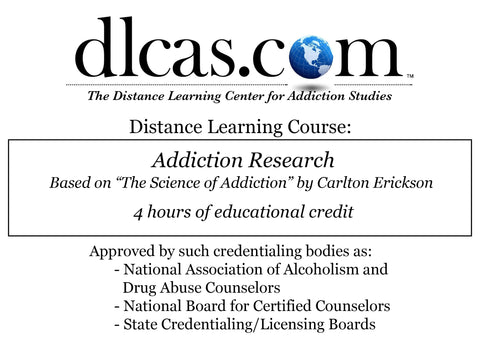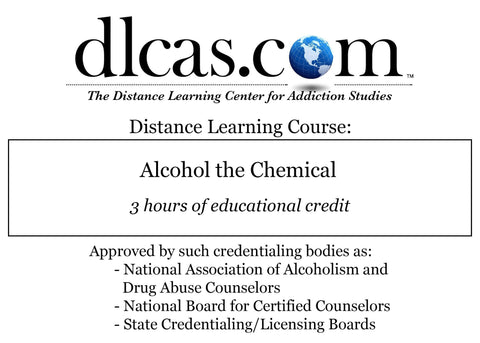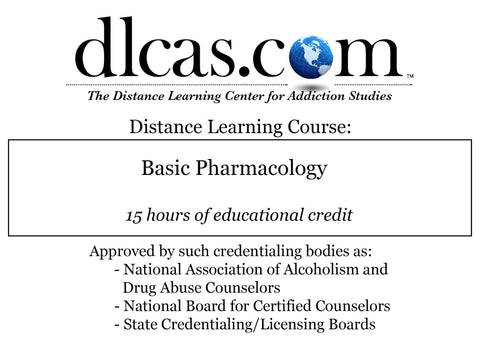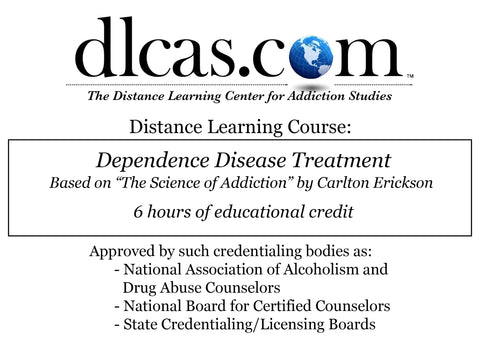
Substance Use Disorder Treatment for People With Co-Occurring Disorders (30 hours)
This 30 hour course, authored by Dennis Daley, Ph.D., is intended to provide addiction counselors and other providers, supervisors, and administrators with the latest science in the screening, assessment, diagnosis, and management of co-occurring disorders (CODs). For purposes of this course, the term CODs refers to co-occurring substance use disorders (SUDs) and mental disorders. Clients with CODs have one or more disorders relating to the use of alcohol or other substances with misuse potential as well as one or more mental disorders. A diagnosis of CODs occurs when at least one disorder of each type can be established independently of the other and is not simply a cluster of symptoms resulting from the one disorder.
The course is organized to guide counselors and other addiction professionals sequentially through the primary components of proper identification and management of CODs. The course is divided into chapters so that readers can easily find the material they need. The following is a summary of the overall main points and summaries of each of the eight course chapters.
The primary focus of this course is co-occurring SUDs and mental disorders, not physical disorders. People with mental illness also frequently develop physical conditions that, like SUDs, can exacerbate or induce symptoms (e.g., HIV, hepatitis C virus, hypothyroidism). However, physical conditions are beyond the scope of this course and are excluded.
Goals/Objectives
By participating in this this Distance Learning Course, the trainee will:
- Learn the terminology surrounding CODs and COD treatment approaches.
- Identify numerous factors that led to the creation of this course.
- Investigate services for people with CODs must be recovery oriented, culturally responsive, and inclusive of clients’ families or support system (including mutual-help and peer recovery supports).
- Identify screening and assessment measures that are validated for use with people who have mental disorders and SUDs to help counselors make diagnostic determinations and guide decisions about referral for further evaluation (e.g., psychiatric, medical).
- Describe disorders that most commonly co-occur with SUDs include major depressive disorder, persistent depressive disorder (dysthymia), bipolar I disorder, PTSD, borderline and antisocial PDs, schizophrenia and other psychotic disorders, generalized anxiety disorder, panic disorder, social anxiety disorder, ADHD, anorexia nervosa, bulimia nervosa, and binge eating disorder.
- Recognize the need to treat SUDs in the presence of a mental disorder in slightly different ways than they would treat addiction without comorbid mental illness.
- Differentiate between mental disorder symptoms and symptoms of SUDs.
- Understand how rapport building is essential in helping clients achieve and sustain positive behavior change.
- Learn how to integrate relapse prevention and skill building as part of comprehensive care.
- Determine the needs of different populations who may be especially susceptible to treatment challenges and negative outcomes.
- Compare how to provide culturally responsive assessments and treatments or other services to meet the unique needs facing clients of diverse racial/ethnic backgrounds who have CODs.
- Acquire knowledge of pharmacotherapy as a core part of COD treatment, especially for people with depression, bipolar disorder, anxiety, schizophrenia/psychotic disorders, AUD, or OUD.
- Consider the role of burnout as a major component of staff turnover.
Dennis C. Daley,Ph.D., is director of the Center for Psychiatric and Chemical Dependency Services and an associate professor of psychiatry at the University of Pittsburgh Medical Center, Department of Psychiatry, at Western Psychiatric Institute and Clinic in Pittsburgh. Daley has been involved in managing and providing treatment services for people with alcohol and other drug problems and dual disorders for over two decades. He has written over 125 publications including journal articles, books, clinical manuals, client workbooks, and recovery guides.
Daley has authored numerous Hazelden publications including Dual Disorders: Counseling Clients with Chemical Dependency and Mental Illness; Celebrating Small Victories; A Family Guide to Dual Disorders; Coping with Dual Disorders; Preventing Relapse (workbook); Understanding Major Anxiety Disorders and Addiction (workbook); Understanding Bipolar Disorder and Addiction (workbook); Understanding Depression and Addiction (workbook); Understanding Personality Problems and Addiction (workbook); and Understanding Schizophrenia and Addiction (pamphlet and workbook). He teaches on these subjects throughout the United States and other countries.
Daley is also involved in several federally funded research projects on treatment of cocaine addiction and treatment of dual disorders. Daley authored the highly successful Living Sober I and Living Sober II Interactive Videotape Series and the Promise of Recovery Educational Videotape Series.
Internet Format - Coursework that is available immediately via a downloadable PDF file (a popular online format that requires you to have the Adobe Reader program, or one similar, installed on your computer). Many websites already use this very user friendly file format, so chances are you already have a PDF reader installed on your computer. This format allows faster downloading, easier reading, and easier printing. All course materials will be included, as will the link to the post-test required for course completion. Access and downloading information will be immediately sent to the email address you provide at checkout. There is no additional charge for this format.
USB Flash Drive Format - Different computers, processors, ISP's, and software make it sometimes difficult or time-consuming to capture materials provided via the Internet. As a result, we've added the Flash Drive format to our list of options. With this format we will send you a Flash Drive by Priority Mail that can be used on any computer, laptop, tablet with a USB port. The drive will include a PDF copy of the course or courses ordered along with the test link needed to complete your course using our online test system. This option will include additional per course costs for materials/shipping/handling.
Hard Copy Format - Coursework that is delivered to you by Priority Mail in book form. All course materials will be included, as will the post-test required for course completion. For immediate results and faster certificate processing an email containing instructions on how to access your post-test online will be sent to the email address provided at checkout. Should you not want to submit the test yourself, a mail/fax form is also included that will allow you to mail or fax your test responses to us for processing. Hard copy courses will include additional per course costs for materials/shipping/handling.




